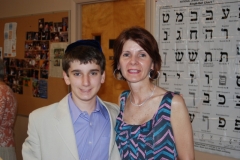
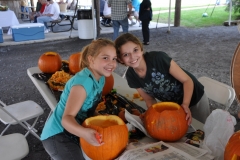
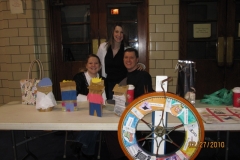
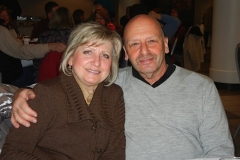
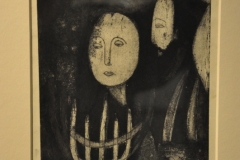
The following is a guest blog by Rabbi Audrey Korotkin: “In the wake of the horrific murders last Saturday in Pittsburgh of 11 Jews at prayer, congregations and communities across North America have gathered in sanctuaries and in parks and on street corners to mourn the victims – sharing the names of the dead as they share their own grief. Even for those who did not know the victims, the slaughter is a dagger in the heart, for each life taken so violently strikes at us all.
This is the essence of Jewish mourning: no one grieves alone. The service of Yizkor – remembrance – originated in Europe over time as a communal response to the massacre of Rhineland Jews during the Crusades beginning in 1096, as Crusaders took time to slaughter Jews on their way to retaking Jerusalem from Islamic rule. These innocents came to be seen as martyrs sacrificed for the sanctification of God’s name, and their names were read in synagogues on Yom Kippur each year. We know that such a list was shared in Nuremberg as early as 1295; the tradition soon spread, and to these names were later added those Jews killed throughout Europe during the Black Death of 1348-49 by fear-stricken mobs who believed that Jews had deliberately poisoned wells to kill Christians.
Yizkor traditions varied from place to place throughout the Middle Ages. German communities, where the practice started, at first honored these victims of Jew-hatred and persecution by sharing their names on the Shabbat closest to the spring festival of Shavuot(when the slaughter of the Rhineland Jews took place) and also on the Shabbat closest to the 9th of Av (Tishah B’Av, when we mourn the destruction of the First and Second Temples in Jerusalem), which came to be known as “Black Sabbath.†In Eastern Europe, where Jews endured persecutions of their own, the names were read every single Shabbat. And in still other regions of Europe, Yizkorservices were later held on the final days of the three pilgrimage festivals of Passover, Sukkot and Shavuot.
At the same time that the focus on martyrology was spreading across medieval Europe, other traditions also were developing. Memorial lists of congregational benefactors were compiled and read aloud as early as the late 13th century; eventually, the remembrance of the dead was extended to every family in a congregation, evolving into the Yizkor service as we know it today.
Yet, because in every generation Jews have been persecuted and killed for their faith somewhere in the world, Judaism still holds a special place for those murdered precisely because they are Jews. Thus we still recite a martyrology on Yom Kippur, and we pay homage on Yom HaShoah to the six million Jews slaughtered in the Holocaust – even those whose names we do not know and those who have no family member left to recite Kaddish for them.
And so we come to the dead of Tree of Life Congregation in Pittsburgh, whose names and faces are now so familiar to us: Joyce Fienberg, Richard Gottfried, Rose Mallinger, Jerry Rabinowitz, brothers Cecil Rosenthal and David Rosenthal, married couple Bernice Simon and Sylvan Simon, Daniel Stein, Melvin Wax, Irving Younger.
As they are laid to rest this week, with prayers recited for God to keep their souls safe and at peace, they are not just remembered by their family and friends. In keeping with our tradition, their names are being shared from Pittsburgh to Jerusalem – in congregations Jewish and non-Jewish alike – in street-corner vigils, in traditional news media, and throughout social media. They, too, are martyrs of our people, massacred solely because they were Jews. Slaughtered, like the Jews of the Rhineland and those accused of perpetuating the Black Death and those who died in the Shoah, in an environment that is rife with unfounded fear, paranoia, and hatred – by a man who not only had a desire to kill Jews but the means with which to do it.
We honor them with words of the memorial prayer Av Harachamim (Merciful Parent), composed for the Jewish victims of the Rhineland massacres of the First Crusade and included in Yizkor worship since then:
May the Source of mercy who dwells on high
in God’s great mercy
remember with compassion
the pious, upright and blameless
the holy communities, who laid down their lives
for the sanctification of the Divine name.
They were loved and pleasant in their lives
and in death they were not parted.
They were swifter than eagles and stronger than lions
to carry out the will of their Maker,
and the desire of their steadfast God.
May our God remember them for good
together with the other righteous of the world.â€
No comments yet.
RSS feed for comments on this post.
Sorry, the comment form is closed at this time.
Powered by WordPress